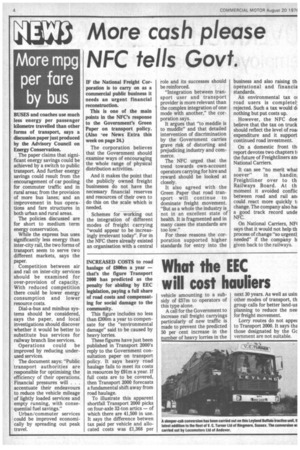ASX More cash please
Page 6

If you've noticed an error in this article please click here to report it so we can fix it.
More mpg per fare by bus
BUSES and coaches use much less energy per passenger kilometre travelled than other forms of transport, says a discussion paper just produced by the Advisory Council on Energy Conservation.
The paper claims that significant energy savings could be achieved by a switch to public transport. And further energy savings could result from the encouragement of car pooling for commuter traffic and in rural areas; from the provision of more bus lanes; and an improvement in bus operations and fare structures in both urban and rural areas.
The policies discussed are for short to medium term energy conservation.
While the express bus uses significantly less energy than inter-city rail, the two forms of transport seem to serve two different markets, says the paper.
Competition between air and rail on inter-city services should be examined for over-provision of capacity. With reduced competition there could be lower energy consumption and lower resource costs.
Dial-a-bus and minibus systems should be considered, says the paper, and local investigations should discover whether it would be better to substitute bus services for railway branch line services.
Operations could be improved by reducing underused services.
The document says: "Public transport authorities are responsible for optimising the efficiency of their operations. Financial pressures will . . . accentuate their endeavours to reduce the vehicle mileage of lightly loaded services and empty running, with consequential fuel savings."
Urban/commuter services could be improved economically by spreading out peak travel.




































































































